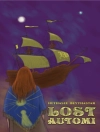In ‘Jules Verne: 25 Greatest Books in One Volume (Illustrated Edition), ‘ the reader embarks on a thrilling voyage through the imaginative realms crafted by one of the founding figures of science fiction. This meticulously curated collection showcases Verne’s unparalleled ability to fuse adventure with visionary technological concepts, featuring iconic works such as ‘Twenty Thousand Leagues Under the Sea’ and ‘Around the World in Eighty Days.’ The illustrations accompanying the texts serve not only as visual splendor but also enhance the narrative’s vivid landscapes, transporting readers into the realms of exploration, innovation, and human endurance that Verne so masterfully portrays. His rich prose and intricate plots reflect the cultural context of the 19th century, a time when scientific progress sparked dreams of boundless exploration. Jules Verne, often hailed as the ‘father of science fiction, ‘ was profoundly influenced by the rapid industrial advancements and the spirit of exploration dominant in his era. His childhood fascination with science and mechanics, coupled with a profound love for adventure, led him to weave tales that explore the intersection of technology and human curiosity. Verne’s insights into future possibilities frequently foreshadowed real-world inventions, underscoring his visionary intellect. This illustrated edition is a must-read for both long-time admirers and new enthusiasts alike, offering a comprehensive experience of Verne’s literary genius. Engaging with this collection not only unveils the beauty of his storytelling but also inspires contemporary readers to dream about the vast, uncharted territories of science and adventure awaiting exploration.
عن المؤلف
Jules Verne, born on February 8, 1828, in Nantes, France, is often heralded as a pioneering figure in the science fiction genre. Verne’s literary career began when he left his provincial upbringing to study law in Paris, though his passion for theatre and writing quickly superseded his legal aspirations. In his mid-twenties, Verne met Pierre-Jules Hetzel, a renowned publisher who would become his collaborator and champion, leading to the serial publication of his first novel, ‘Five Weeks in a Balloon’ in 1863. This collaboration marked the beginning of the ‘Voyages Extraordinaires, ‘ a series that includes his most famous works, serving both as audacious adventures and pedagogical tools that introduced readers to Earth’s geography and scientific advancements. Verne’s prophetic imagination is encapsulated in classics such as ‘Twenty Thousand Leagues Under the Sea, ‘ ‘Around the World in Eighty Days, ‘ and ‘Journey to the Center of the Earth, ‘ which not only entertained but foreshadowed technological innovations long before their time. He excelled in merging the meticulous research, which included traversing libraries and conversing with experts, with his own inventive narrative style that often centred around the theme of exploration. Veiled in his fantastical plots are reflections on human ambition and the societal implications of technological progress. Jules Verne’s impact on literature persists well into the 21st century, solidifying his status as the ‘Father of Science Fiction, ‘ a title he shares with H.G. Wells. His death on March 24, 1905, was a loss to the literary world, but his works continue to inspire and ignite human curiosity and ingenuity.












